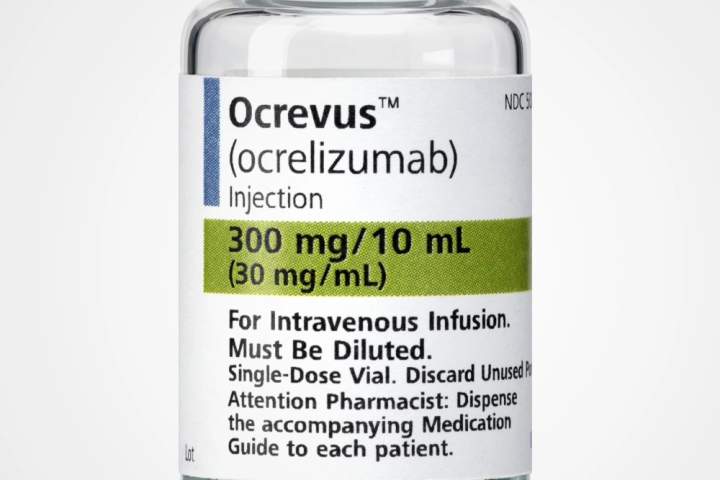Health
B.C. Woman Fights for Coverage of Life-Changing MS Drug

A woman from British Columbia, Cassandra Nieman, is advocating for the inclusion of a critical medication for her multiple sclerosis (MS) treatment, which is not currently covered by the provincial government. This lack of support raises concerns about her quality of life as she faces the possibility of significant out-of-pocket expenses.
Nieman, 40, began losing her vision nearly a decade ago, ultimately leading to her MS diagnosis. She recalls a vibrant life as a working mother, filled with family activities. However, as her vision deteriorated, her ability to engage in everyday activities diminished. “I was home 24-7,” she noted. “If I was going out, even now, it’s short trips. I try to plan, because I know my eyes can’t handle the movement.”
Prescribed Ocrevus, a drug that significantly improved her vision and managed other symptoms, Nieman experienced a transformation in her daily life. Until recently, her husband’s insurance covered the medication, which costs approximately $20,000 annually. Unfortunately, that coverage is set to change, leaving Nieman anxious about the financial implications.
“I am terrified to be without the drug,” Nieman stated, emphasizing its life-changing effects. Since beginning treatment, she has avoided the need for intensive intravenous therapies and steroids, with her MRI results remaining stable. “By 2022, I didn’t need steroids anymore. I haven’t needed them since,” she remarked.
The B.C. government does not provide coverage for Ocrevus, although it does cover a generic alternative, which has been associated with more adverse side effects. Dr. Mark Freedman from the Ottawa Hospital Research Institute highlighted the financial motivations behind this decision. “The only reason to go to biosimilars is the cost,” he explained. “Someone’s not thinking outside the envelope. They’re looking at the simple cost of the drug.”
Global News sought clarification from the B.C. Ministry of Health regarding why the province does not cover Ocrevus and whether there are plans to change this policy. However, there was no response by the deadline.
Nieman received her last dose of Ocrevus last week. Reflecting on her experience, she expressed gratitude for the improvements the drug has brought to her life. “When we look at how well it has done things for me and my family, where I can actually go and do things now, I’m not always in pain,” she said. Her ability to participate in family outings, including camping trips, has significantly enhanced her quality of life.
As she continues to navigate her treatment options, Nieman’s story serves as a powerful reminder of the challenges many face when access to essential medications is restricted.
-

 Politics6 days ago
Politics6 days agoSecwepemc First Nation Seeks Aboriginal Title Over Kamloops Area
-

 World4 months ago
World4 months agoScientists Unearth Ancient Antarctic Ice to Unlock Climate Secrets
-

 Entertainment4 months ago
Entertainment4 months agoTrump and McCormick to Announce $70 Billion Energy Investments
-

 Lifestyle4 months ago
Lifestyle4 months agoTransLink Launches Food Truck Program to Boost Revenue in Vancouver
-

 Science4 months ago
Science4 months agoFour Astronauts Return to Earth After International Space Station Mission
-

 Technology3 months ago
Technology3 months agoApple Notes Enhances Functionality with Markdown Support in macOS 26
-

 Top Stories1 month ago
Top Stories1 month agoUrgent Update: Fatal Crash on Highway 99 Claims Life of Pitt Meadows Man
-

 Sports4 months ago
Sports4 months agoSearch Underway for Missing Hunter Amid Hokkaido Bear Emergency
-

 Politics3 months ago
Politics3 months agoUkrainian Tennis Star Elina Svitolina Faces Death Threats Online
-

 Politics4 months ago
Politics4 months agoCarney Engages First Nations Leaders at Development Law Summit
-

 Technology4 months ago
Technology4 months agoFrosthaven Launches Early Access on July 31, 2025
-

 Top Stories3 weeks ago
Top Stories3 weeks agoFamily Remembers Beverley Rowbotham 25 Years After Murder





















